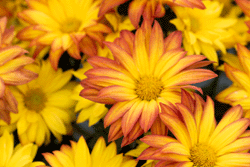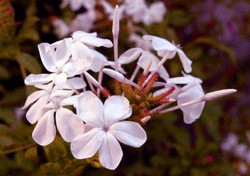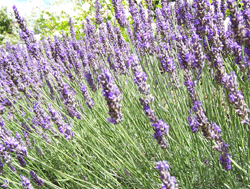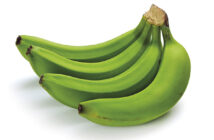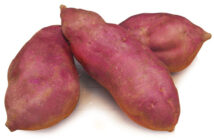Rising interest in naturalness and growing awareness of the potential health benefits of botanical ingredients have combined with the desire for something more unusual to develop the demand for floral ingredients and flavourings.
The use of flowers as flavourings has long been popular in Japan and other parts of the Far and Middle East, but that trend has now spread to western markets.
The number of global food and drinks launches featuring floral ingredients recorded by Innova Market Insights in the first 10 months of 2011 rose seven percent over the same period in 2010.
That puts it already within striking distance of the total recorded for the whole of that calendar year and more than four times the level recorded five
years previously.
Innova records that the most popular floral flavours globally in the January to October period were jasmine, lotus, rose and chrysanthemum.
But there were significant differences according to geographical region and type of food and drink product.
Lotus for example is one of the most popular floral flavours in Asia, but barely featured in launches in North America and Europe in 2011 other than as one of a range of flavours in a few speciality teas in France, Germany, the UK and the US, and as an ingredient in a range of authenticstyle Chinese mooncakes in Canada.
In North America and Europe jasmine and rose were the most popular floral flavours in new product activity, mainly reflecting their use in tea, often in combination with fruits, although orange blossom also featured in tea and honey launches with lavender and hibiscus also ranked among the leaders.
Less common were geranium and cherry blossom, although cherry blossom featured a growing presence in Asia.
The Innova database shows that a wide range of food and drink sectors have seen activity in the use of floral flavours globally, led by hot beverages, primarily tea, soft drinks and confectionery, but also including alcoholic beverages, dairy products, spreads and seasonings.
Tea, soft drinks and confectionery accounted for a combined 70 percent of total launch activity featuring floral flavourings in the first 10 months of 2011 with jasmine leading in tea, rose in confectionery and chrysanthemum in soft drinks.
Flowers are often used in combination with other ingredients, particularly fruits, and in the soft drinks market have found increasing favour as natural but exotic ingredients in botanical blends for fruit drinks and flavoured waters.
This is noticeable in products for adults, as well as in more specialist functional lines, such as the pomegranate, hibiscus and aloe ferox antioxidant drink from Nishamai in France and the Bizz’Up all-natural hibiscus-based wellness drink in Germany.
In the confectionery sector, rose is a traditional flavour in Turkish Delight-type products, but it now appears in a growing number of premium chocolate lines, particularly dark chocolate, alongside lavender, violet and also orange blossom, geranium and jasmine. Recent launches include Bovetti Chocolate Petales de Rose and Fleur de Lavande in France, the Belgian Dolfin Chocolate Noir Violette and Rose variants in the US and vanilla
sweets with a hint of jasmine by UK retailer Marks & Spencer.
“Companies are increasingly using floral flavours to impart new and unique notes and aromas to a range of food and drinks products, particularly in countries and regions where they may not traditionally be used,” says Innova research manager LuAnn Williams.
“This is particularly impacting the beverages sector, although confectionery is also seeing a relatively high level of activity as consumers continue to search for something combining novelty with naturalness and a healthy image.”
For more information:
Tel: +61 2 9647 1479, +61 407 262 838
E-mail: [email protected]
Visit: www.innova-food.com.au


























































































